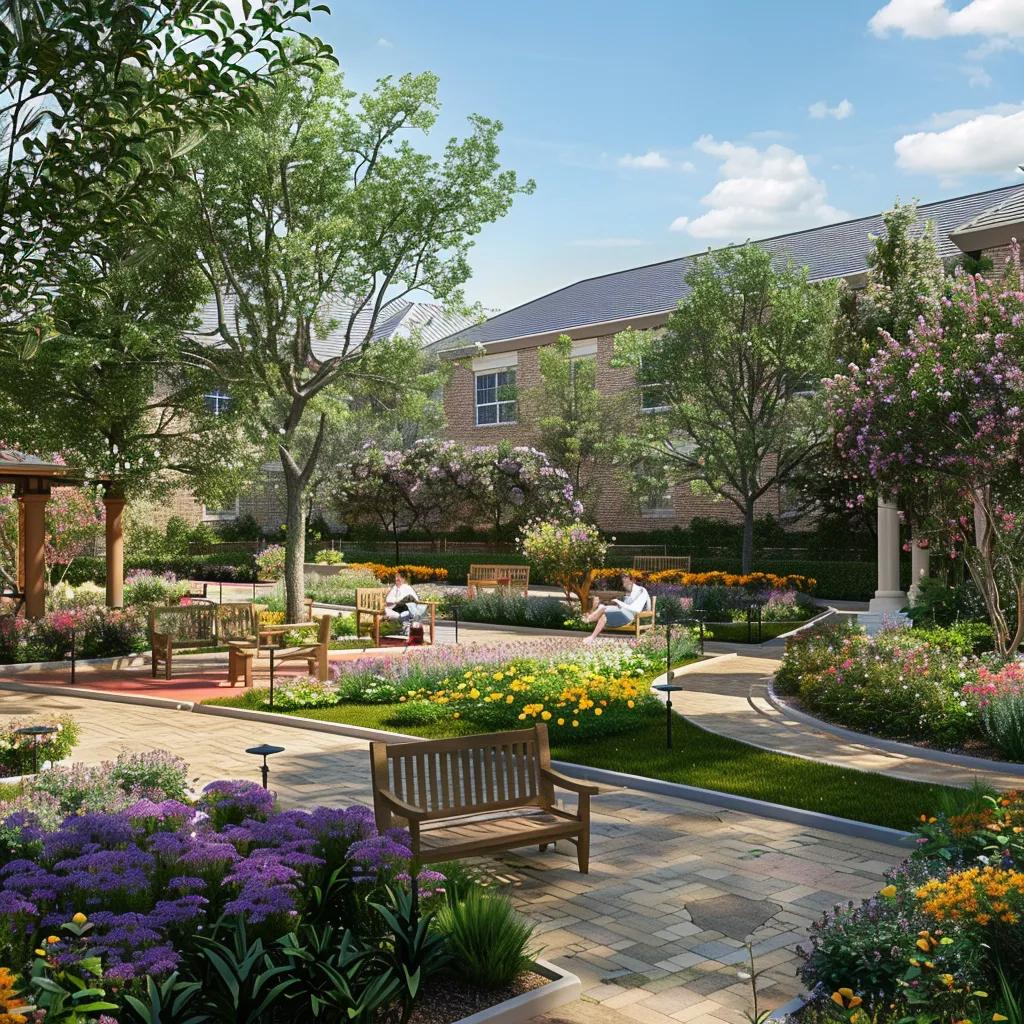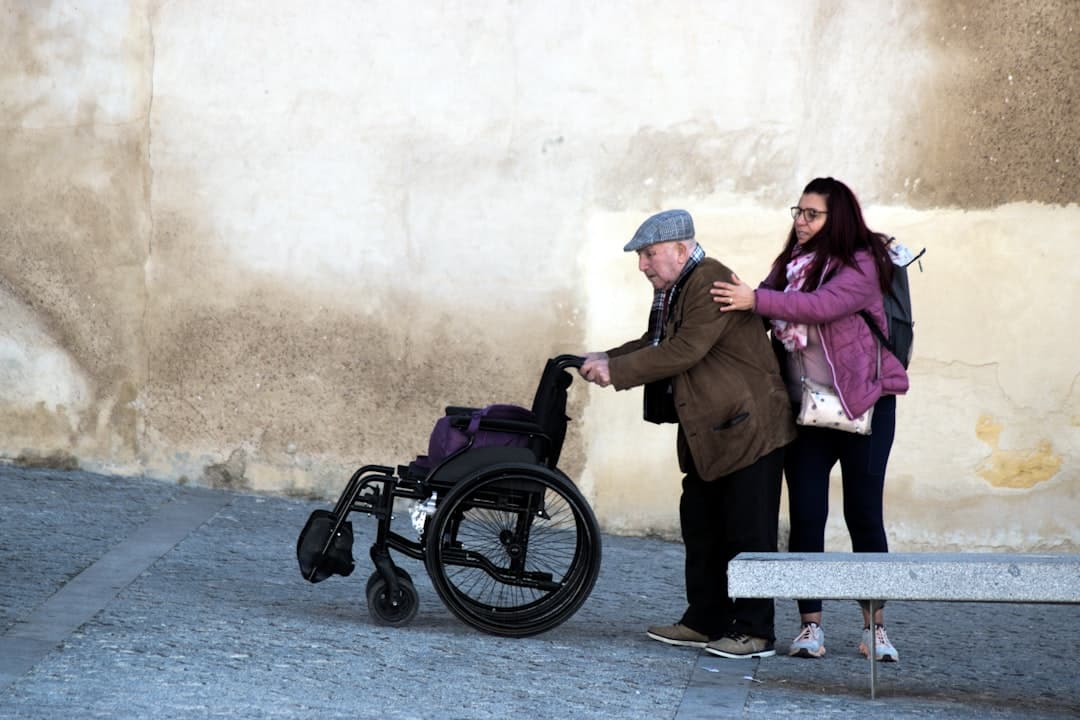Find top Los Angeles memory care facilities. Explore costs, specialized therapies & expert tips to choose the best for your loved one.

Alzheimer’s Care Facilities: Finding the Best Options
Alzheimer’s Care Facilities: Finding the Best Options

Alzheimer’s Care Facilities Nearby: Finding the Best Options for Personalized Memory Care

Selecting the right Alzheimer’s care facility nearby can mean the difference between confusion and comfort for a senior living with dementia. With over 7 million Americans aged 65 and older experiencing cognitive decline, families must navigate a range of memory care, assisted living, and therapeutic environments to find the best match. This guide explores what defines a memory care facility, how to spot when a loved one needs specialized support, the essential features of quality programs, cost considerations and financing, practical selection strategies, daily life expectations, and local resources in Ypsilanti and Ann Arbor. By understanding personalized care plans, home-like environments, safety measures, financial aid options, and community services, families will be equipped to choose a residential care setting that promotes dignity, engagement, and wellbeing.
What Are Alzheimer’s and Dementia Care Facilities?
Alzheimer’s and dementia care facilities are specialized residential communities designed to support cognitive, physical, and emotional needs of seniors experiencing memory loss. These facilities combine secure living spaces with structured routines and therapeutic programs to reduce wandering, confusion, and anxiety, ultimately enhancing quality of life for residents. For example, dedicated memory care wings implement personalized activity schedules that align with each individual’s cognitive ability, ensuring meaningful engagement.
What Is Alzheimer’s Disease and How Does It Affect Seniors?
Alzheimer’s disease is a progressive neurodegenerative condition that impairs memory, reasoning, and daily living activities by causing amyloid plaques and neurofibrillary tangles in the brain. This mechanism leads to gradual loss of short-term memory, difficulty finding words, and disorientation, which can make independent living unsafe. As cognitive decline advances, residents benefit from specialized environmental cues and routine-based support that preserve dignity and reduce distress.
Alzheimer’s Disease and Cognitive Decline
Alzheimer’s disease is a progressive neurodegenerative condition that impairs memory, reasoning, and daily living activities. This is caused by amyloid plaques and neurofibrillary tangles in the brain, leading to gradual memory loss and disorientation.
This research provides a foundational understanding of the disease process, which is essential for understanding the need for specialized care.
What Types of Dementia Require Specialized Memory Care?
Dementia encompasses multiple conditions—each with unique patterns of decline—requiring tailored memory care approaches. Three common types include:
- Lewy Body Dementia – Marked by visual hallucinations and fluctuating attention, benefiting from low-stimulation environments.
- Vascular Dementia – Caused by impaired blood flow to the brain, requiring cardiovascular-focused therapies and routine monitoring.
- Frontotemporal Dementia – Characterized by behavioral changes and language difficulties, addressed by specialized communication strategies.
Recognizing these subtypes guides facility selection toward programs that address specific cognitive and behavioral challenges.
How Do Memory Care Facilities Differ from Assisted Living?
Memory care facilities provide higher supervision and structured therapeutic programming than assisted living, focusing on residents with moderate to severe cognitive impairment. Assisted living offers support with daily activities—such as medication reminders and meals—while promoting independence. The following table compares core attributes:
Understanding these distinctions helps families choose the right care intensity.
What Is a Home-like Environment in Memory Care?

A home-like environment in memory care replicates familiar household features—such as living rooms, kitchens, and gardens—to foster comfort and orientation. Personalization mechanisms include memory boxes, family photos, and neighborhood-style layouts, which reduce anxiety and encourage engagement. This atmosphere supports emotional wellbeing and sets the stage for identifying when specialized interventions become necessary.
How to Identify When a Loved One Needs Memory Care?
Recognizing the right time for memory care hinges on observing cognitive, functional, and safety signals that indicate the need for professional support. Early intervention preserves quality of life and prevents crises by matching care levels to evolving needs.
What Are the Early Signs of Dementia and Alzheimer’s?
Early signs of dementia and Alzheimer’s include increasing forgetfulness, difficulty following conversations, misplacing items, and repetitive questioning. These indicators stem from impaired neural pathways responsible for encoding new memories. Families often notice:
- Memory lapses that disrupt daily routines
- Language challenges such as word-finding pauses
- Executive dysfunction in planning or problem-solving
Spotting these symptoms prompts timely assessment for memory care placement.
How Does Caregiver Burnout Indicate Need for Memory Care?
Caregiver burnout—characterized by chronic stress, fatigue, and emotional exhaustion—signals that home-based care may no longer be sustainable. The continuous demands of supervising daily living activities and managing behavioral changes can compromise caregiver health. Transitioning to a memory care setting alleviates caregiver burden while ensuring consistent, specialized support for the resident.
Caregiver Burnout and Memory Care
Caregiver burnout, characterized by chronic stress and emotional exhaustion, can signal that home-based care is no longer sustainable. Transitioning to a memory care setting alleviates caregiver burden while ensuring consistent, specialized support for the resident.
This source highlights the importance of recognizing caregiver needs and the benefits of memory care in providing support.
What Safety Concerns Signal the Need for Specialized Care?
Safety risks such as wandering, cooking incidents, and unsupervised bathing reflect cognitive impairments that necessitate secured environments. The following list outlines key safety concerns:
- Wandering without purpose, leading to disorientation and risk of injury.
- Medication mismanagement that can result in under- or overdosing.
- Inattention to hygiene which increases infection risk and skin breakdown.
Addressing these concerns in a secured facility prevents harm and maintains dignity.
How Can Professional Assessments Help in Decision Making?
Professional assessments by geriatric specialists or neuropsychologists evaluate cognitive function, daily living skills, and behavioral health to recommend appropriate care levels. Standardized tools—such as the Mini-Mental State Examination (MMSE)—provide objective scores that guide families toward memory care, assisted living, or home-based supports. These evaluations create a roadmap for safe and compassionate care transitions.
With clarity on when to move forward, families can explore the defining features of high-quality Alzheimer’s care facilities.
What Are the Key Features of Quality Alzheimer’s Care Facilities?
Top-tier Alzheimer’s care facilities combine specialized staffing, tailored programming, robust safety measures, and ongoing staff education to deliver compassionate, effective support.
Why Is a High Caregiver-to-Resident Ratio Important?
A high caregiver-to-resident ratio ensures personalized attention, quicker response times, and stronger relationships between staff and residents. Smaller group sizes allow caregivers to:
- Learn individual preferences and life histories
- Monitor health changes promptly
- Adapt activities to cognitive levels
This personalized care model underpins improved resident satisfaction and reduced behavioral incidents.
What Specialized Therapeutic Programs Are Offered?
Therapeutic programs in memory care harness multiple modalities to maintain cognitive skills and emotional wellbeing. Key offerings include:
- Music Therapy to stimulate memory through familiar songs.
- Reminiscence Therapy using personal artifacts to reinforce identity.
- Cognitive Stimulation Activities such as puzzles and group games.
- Art and Movement Therapy for sensory engagement and expression.
These programs leverage neuroplasticity to support daily functioning and mood stabilization.
How Do Safety Features Protect Residents?
Safety features in memory care facilities create secure yet nurturing spaces that prevent accidents and wandering. Common measures include:
- Secured entry/exit systems to control access
- Motion sensors that alert staff to unusual activity
- Adaptive lighting to reduce glare and disorientation
- Enclosed outdoor gardens for safe outdoor engagement
Such design elements promote autonomy within a protected environment.
What Role Does Staff Training Play in Dementia Care?
Ongoing staff training in dementia care equips caregivers with skills in communication techniques, behavioral management, and emergency protocols. Certified programs cover:
- Person-centered care principles that honor individuality
- De-escalation strategies for agitation or anxiety
- Best practices in medication administration
Continuous education fosters a culture of expertise and ensures that care teams remain current with evolving dementia research.
A clear understanding of these features leads naturally into the financial considerations that families must address.
How Much Does Memory Care Cost and What Are Financing Options?
Memory care costs reflect specialized staffing, secured facilities, and therapeutic programming, but financial assistance programs can offset expenses for many families.
What Is the Average Cost of Memory Care Facilities Nearby?
The average monthly cost for memory care facilities in Ypsilanti and Ann Arbor ranges from $5,500 to $7,000, depending on:
- Level of care and staffing ratios
- Suite size and amenities
- Included services such as therapies and meals
Reviewing transparent pricing structures helps families plan budgets and compare options effectively.
How Does Medicaid Eligibility Affect Memory Care Financing?
Medicaid eligibility criteria vary by state but may cover a portion of room, board, and care services for low-income seniors. In Michigan, Medicaid waivers and “MiChoice” programs can subsidize memory care costs for qualified individuals. Understanding income and asset limits is essential for maximizing public benefits.
What Other Financial Aid Options Are Available?
Beyond Medicaid, additional funding sources include:
- Veterans Benefits through Aid and Attendance allowances.
- Long-Term Care Insurance policies that cover memory care.
- Supplemental Social Security Income (SSI) for low-income seniors.
- State and Local Grants for elderly care programs.
Combining multiple aid streams can significantly reduce out-of-pocket expenses.
How Can Families Plan for Memory Care Expenses?
Proactive financial planning involves:
- Consulting with a certified elder law attorney.
- Exploring reverse mortgage options for home equity.
- Setting up a dedicated long-term care savings plan.
Early planning ensures families can secure optimal care without depleting retirement resources.
Financial clarity empowers families to adopt systematic selection processes for the best facility match.
How to Choose the Best Alzheimer’s Care Facility Near You?
Selecting an Alzheimer’s care facility requires informed evaluation of care quality, environment, and family communication practices.
What Questions Should You Ask During a Memory Care Tour?
When touring a memory care facility, inquire about:
- Staff-to-resident ratios and caregiver training programs.
- Daily schedules for therapeutic and recreational activities.
- Security measures and emergency response protocols.
- Personalized care plan development and review frequency.
- Policies on family involvement and visitation.
These questions reveal operational priorities and care philosophies.
How Important Are Personalized Care Plans?
Personalized care plans define each resident’s routines, preferred activities, dietary needs, and cognitive goals. Regularly updated by interdisciplinary teams, these plans ensure that daily interventions remain aligned with evolving needs and life stories. This individualized framework distinguishes exceptional memory care programs.
Why Is Family Involvement Vital in Care Decisions?
Family members contribute crucial insight into a loved one’s history, preferences, and personality, enabling staff to tailor environments and activities. Scheduled family meetings foster collaboration on behavior management strategies and ensure transparent communication. Active family partnerships enhance trust and continuity of care.
How to Evaluate Facility Environment and Amenities?
Assess the physical environment by observing:
- Cleanliness and homelike décor
- Access to secure outdoor spaces
- Variety of communal and private areas
- Availability of on-site therapy rooms and activity centers
Amenities such as chef-prepared meals, transportation services, and pet-therapy programs further enrich daily living.
A thorough selection process leads naturally into understanding life within these communities.
What Is Life Like at a Memory Care Facility?
Life in a memory care facility blends structured engagement, meaningful social interactions, and compassionate support designed to uphold dignity and cognitive function.
What Therapeutic Activities Support Cognitive Health?

Residents participate in daily programs that foster mental stimulation and emotional wellbeing:
- Group reminiscence sessions using music, photos, and keepsakes
- Cognitive exercise classes such as word games and brain teasers
- Sensory engagement workshops involving aromatherapy and tactile art
- Gentle fitness routines to promote mobility and circulation
Regular involvement in these activities helps preserve skills and provides a sense of purpose.
How Does a Home-like Environment Benefit Residents?
A home-like setting encourages familiarity and reduces stress through:
- Personalized living spaces with resident belongings
- Family-style dining that promotes social connection
- Comfortable common areas for informal gatherings
- Décor and color schemes chosen for visual clarity
This environment fosters emotional security and supports long-term wellbeing.
What Do Resident and Family Testimonials Reveal?
Testimonials highlight real-world impacts of personalized memory care:
- Families report reduced anxiety and improved mood in loved ones.
- Residents express satisfaction with daily routines and supportive staff relationships.
- Caregiver relief and peace of mind emerge as common themes.
These success stories reinforce the therapeutic benefits of specialized care.
Top Nearby Alzheimer’s Memory Care Facilities for Personalized Support
A robust local ecosystem enhances memory care through community partnerships, educational programs, and caregiver support networks.
What Community Services Complement Memory Care Facilities?
Local services include:
- Adult day programs offering midday social and cognitive stimulation.
- Dementia support groups for families and caregivers.
- Volunteer-led intergenerational activities at libraries and senior centers.
- Transportation assistance programs for medical appointments.
These services extend care continuity beyond residential settings.
How Does Memory Lane Home Serve the Local Area?
By embedding itself in local networks and hosting community education events, Memory Lane Home reinforces its role as a trusted resource.
Where Can Caregivers Find Support and Relief?
Caregivers in Ypsilanti and Ann Arbor can access:
- Respite care services for temporary relief and self-care.
- Workshops on stress management and dementia communication.
- Regional caregiver helplines offering 24/7 advice and emotional support.
These resources help sustain caregiver health and strengthen family support systems.
Transitioning into a facility enriched by community services offers comprehensive support for residents and their families.
Choosing the right Alzheimer’s care facility nearby involves understanding medical needs, recognizing key features of quality programs, navigating costs and financing, evaluating living environments, and leveraging local supports. By focusing on personalized care plans, home-like settings, therapeutic activities, and strong family partnerships, families can secure a supportive memory care option in Ypsilanti and Ann Arbor that honors their loved one’s dignity and wellbeing.
Frequently Asked Questions
What should families consider when touring a memory care facility?
When touring a memory care facility, families should assess the environment, staff interactions, and available activities. Key considerations include cleanliness, safety features, and the overall atmosphere. It’s also important to ask about staff-to-resident ratios, caregiver training, and how personalized care plans are developed. Observing how staff engage with residents can provide insight into the facility’s culture and quality of care. Additionally, inquire about daily schedules and the types of therapeutic programs offered to ensure they align with the resident’s needs.
How can families support their loved ones in a memory care facility?
Families can support their loved ones in a memory care facility by maintaining regular communication and involvement. Visiting frequently and participating in care meetings helps families stay informed about their loved one’s progress and needs. Bringing personal items, such as photos or favorite belongings, can create a sense of familiarity and comfort. Engaging in activities together during visits can also enhance emotional connections. Additionally, families should advocate for their loved one’s preferences and ensure that staff are aware of their unique history and interests.
What role do community resources play in supporting memory care?
Community resources play a vital role in enhancing memory care by providing additional support and services. Local organizations often offer adult day programs, caregiver support groups, and educational workshops that help families navigate the challenges of dementia care. These resources can provide respite for caregivers, social engagement for residents, and valuable information on managing dementia. By connecting with community services, families can create a more comprehensive support network that complements the care provided in memory care facilities.
How can families assess the quality of care in a memory care facility?
Families can assess the quality of care in a memory care facility by observing staff interactions, resident engagement, and overall facility conditions. Asking for references or testimonials from current residents and their families can provide insights into the facility’s reputation. Additionally, reviewing state inspection reports and accreditation can reveal compliance with safety and care standards. Regular communication with staff about care plans and resident progress is also essential for ensuring that the facility meets the specific needs of their loved one.
What are the benefits of specialized therapeutic programs in memory care?
Specialized therapeutic programs in memory care facilities offer numerous benefits, including enhanced cognitive function, emotional wellbeing, and social interaction. Programs such as music therapy, reminiscence therapy, and cognitive stimulation activities are designed to engage residents and stimulate memory recall. These activities can help reduce anxiety and improve mood, fostering a sense of purpose and connection. By addressing individual preferences and cognitive abilities, these programs create a tailored approach that supports residents’ overall quality of life.
How can families prepare for the transition to a memory care facility?
Preparing for the transition to a memory care facility involves open communication, planning, and emotional support. Families should discuss the move with their loved one, addressing any concerns and emphasizing the benefits of specialized care. Creating a checklist of necessary items and personal belongings can help ease the transition. Additionally, visiting the facility together before the move can familiarize the resident with their new environment. Providing emotional support during this time is crucial, as it can help alleviate anxiety and foster a sense of security.
Conclusion
Choosing the right Alzheimer’s care facility nearby is essential for ensuring comfort and dignity for your loved one. By understanding the unique features of quality memory care, families can make informed decisions that enhance wellbeing and support cognitive health. Take the next step in securing the best care by exploring our comprehensive resources and local options. Together, we can help you find a nurturing environment that meets your family’s needs.


